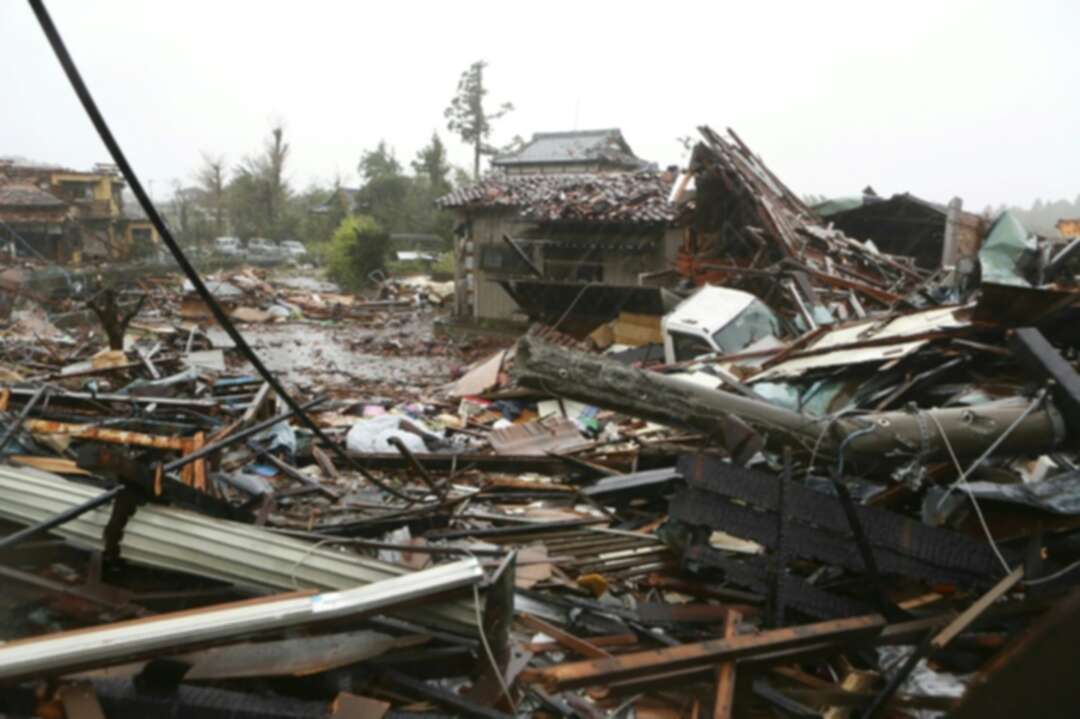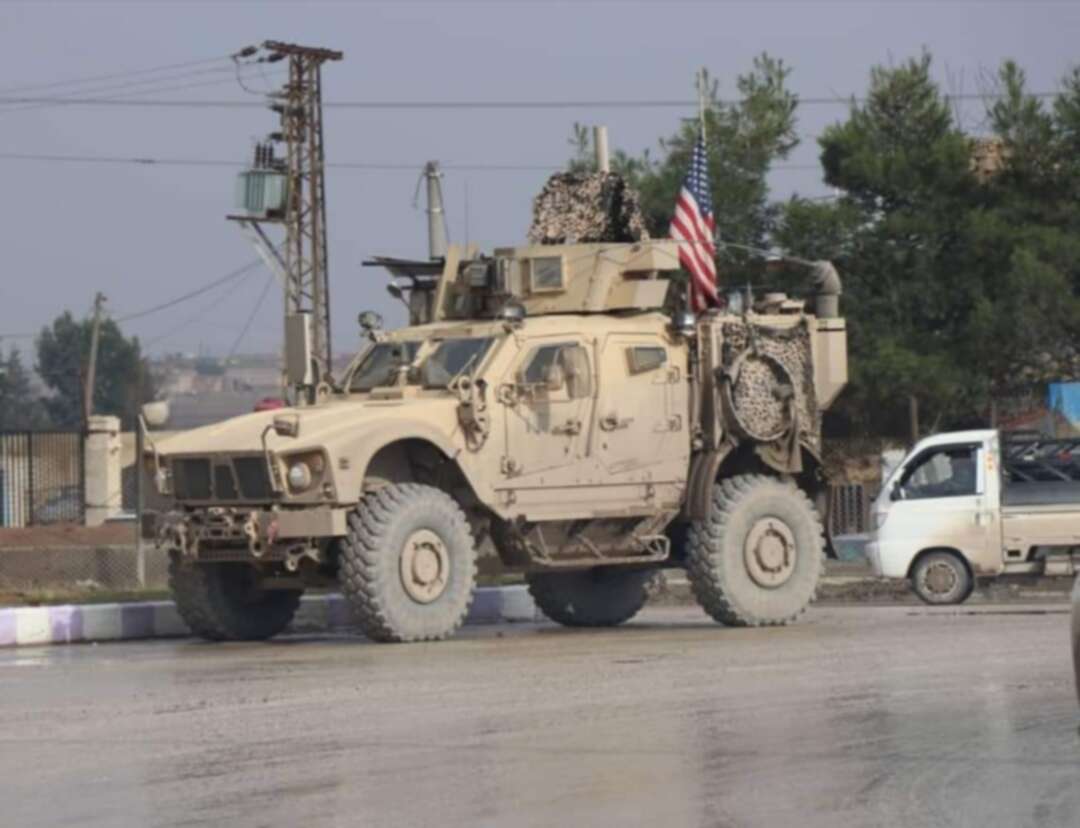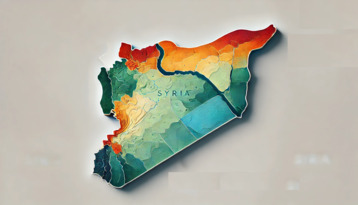-
One dead as 'unprecedented' Typhoon Hagibis nears Japan

Powerful Typhoon Hagibis roared towards Japan's coast on Saturday, killing one person and bringing "unprecedented" downpours that prompted authorities to issue their highest-level rain disaster warning.
More than 3.2 million people have been placed under non-compulsory evacuation orders as authorities warn of imminent flood and landslide danger after hours of torrential rains.
Even before making landfall, Hagibis has caused enormous disruption, forcing the cancellation of two Rugby World Cup matches, delaying the Japanese Grand Prix and grounding all flights in the Tokyo region.
It is forecast to crash into land in central or eastern Japan early Saturday evening local time, packing maximum gusts of 216 kilometres per hour (134 miles per hour), Japan's Meteorological Agency (JMA) said.
But hours before the worst of the storm arrived, its outer bands claimed the first casualty in Chiba, east of Tokyo, where a man was killed when high winds flipped his car.
Hours of torrential rain prompted the JMA to issue their highest-level emergency rain warning for heavy rain for parts of Tokyo and surrounding areas.
"Unprecedented heavy rain has been seen in cities, towns and villages for which the emergency warning was issued," JMA forecaster Yasushi Kajiwara said at a press briefing.
"The possibility is extremely high that disasters such as landslides and floods have already occurred. It is important to take action that can help save your lives."
At least one landslide was already confirmed, engulfing three homes in Sagamihara, southwest of Tokyo, where an elderly man was rescued.
Hagibis is forecast to be the first storm rated "very strong" to hit the main island of Honshu since 1991, when the category system was introduced, a JMA official said.
By early afternoon, 3.25 million people were under non-mandatory evacuation orders, and more than 13,500 people had moved to shelters, including some whose homes were damaged by a powerful typhoon that hit the region last month.
"I evacuated because my roof was ripped off by the other typhoon and rain came in. I'm so worried about my house," a 93-year-old man told national broadcaster NHK as he sheltered at a centre in Tateyama in Chiba east of Tokyo.
Hours before the storm neared land, its outer bands brought tornado-like gusts of wind to Chiba, east of Tokyo, where one home was destroyed and several damaged.
Five people including a three-year-old boy were sent to hospital, but none suffered serious injuries, the local fire department told AFP.
In Gotemba, west of Tokyo, the fire department said it had rescued one man who fell into a swollen canal but was still searching for a second man.
The JMA has forecast half a metre of rain for the Tokyo area in the 24 hours to midday on Sunday, with more for the central Tokai region, but many rivers were already close to breaching their banks by Saturday afternoon.
Thousands of homes in Tokyo and the surrounding areas lost power, though in some cases only briefly, with crews working to reconnect people as quickly as possible.
Automakers, including Toyota and Honda, have shut down their factories, and many supermarkets and convenience stores in the capital have closed, a day after residents shopping for typhoon supplies emptied the shelves.
The storm has forced the delay of Japanese Grand Prix qualifiers scheduled for Saturday and the cancellation of two Rugby World Cup matches: England-France and New Zealand-Italy.
It could also jeopardise a key match-up between Scotland and Japan on Sunday. Officials are not expected to make a final decision on that game until Sunday morning, after they have assessed any damage to the venue and transport links.
Scotland face elimination if the match is axed and have warned they could take legal action if the game is cancelled. World Rugby called the threat "disappointing".
Japan is hit by around 20 typhoons a year, though the capital is not usually badly affected.
source:AFP
You May Also Like
Popular Posts
Caricature
BENEFIT Sponsors Gulf Uni...
- April 17, 2025
BENEFIT, the Kingdom’s innovator and leading company in Fintech and electronic financial transactions service, has announced its sponsorship of the “Innovation and Sustainable Technology Solutions Competition (GU - IST Solutions), hosted by Gulf University at its main campus.
This strategic sponsorship reflects BENEFIT’s active role in advancing technological innovation and fostering sustainable solutions to future challenges. It also seeks to empower Bahraini youth by enhancing their skills, capabilities, and competitiveness in innovation and solution development—contributing meaningfully to the broader goals of sustainable development across all sectors.
As part of BENEFIT’s active involvement in the competition, the company has announced that Hanan Abdulla Hasan, Senior Manager of Public Relations and Communication, will serve on the competition’s supervisory committee. Her upcoming participation reflects BENEFIT’s forward-looking commitment to championing academic and professional excellence.
Commenting on the occasion, Hanan Abdulla Hasan, Senior Manager of Public Relations and Communication at BENEFIT, said, “We are privileged to support this pioneering initiative, which aligns seamlessly with BENEFIT’s enduring commitment to fostering innovation and nurturing the potential of Bahrain’s youth. Our participation is rooted in a deep sense of social responsibility and a firm belief in the pivotal role of innovation in shaping a sustainable future. Through such platforms, we seek to empower the next generation with the knowledge, skills, and foresight required to develop impactful solutions that address future challenges, in line with the United Nations Sustainable Development Goals 2030.”
Dr. Aseel Al Ayash Dean of the College of Engineering in Gulf University commented, “We extend our sincere gratitude to BENEFIT for their generous sponsorship and support of the Innovation and Sustainable Technology Solutions Competition. This contribution plays an instrumental role in helping us achieve the strategic goals of this initiative, namely, cultivating a culture of innovation and sustainability, encouraging efforts that address the imperatives of sustainable development, and enhancing the practical and professional capabilities of our students and participants.”
The event will bring together a diverse spectrum of participants, including secondary school students, university undergraduates, engineers, industry professionals, entrepreneurs, academic researchers, and subject matter experts representing a wide range of disciplines.
The competition seeks to inspire participants to develop and present innovative, sustainable technologies aimed at addressing pressing environmental, social, and economic challenges. It encourages the formulation of business models that integrate advanced technological solutions with core principles of sustainability. Moreover, it serves as a platform for emerging leaders, entrepreneurs, and innovators to contribute to the advancement of the Sustainable Development Goals, promote the ethos of responsible technology, and demonstrate its transformative potential across various sectors.
Attendees will have the opportunity to view a series of project presentations submitted by participants, covering diverse areas such as eco-friendly product design, smart and sustainable innovations, renewable energy technologies, water conservation and management, waste minimisation and recycling, green architectural solutions, and sustainable transportation systems. Outstanding projects will be formally recognised and awarded at the conclusion of the event.
opinion
Report
ads
Newsletter
Subscribe to our mailing list to get the new updates!






















